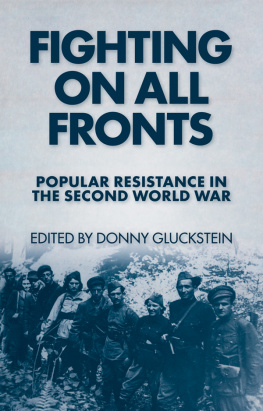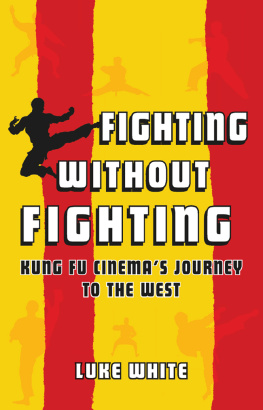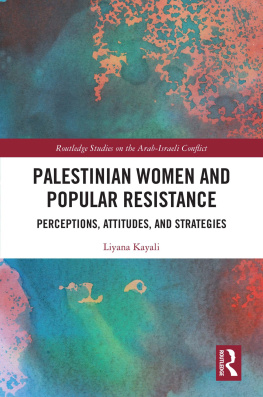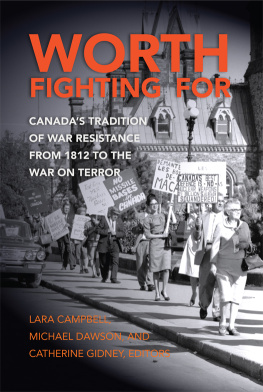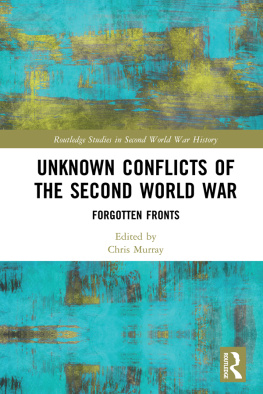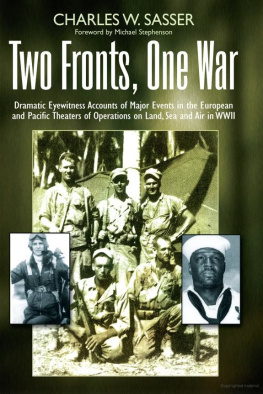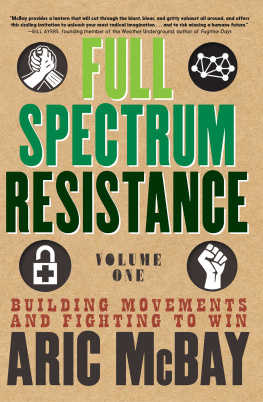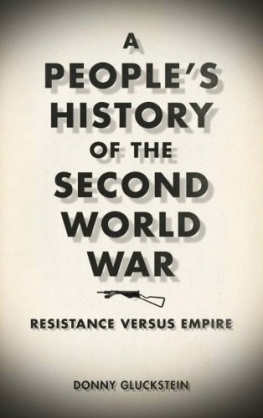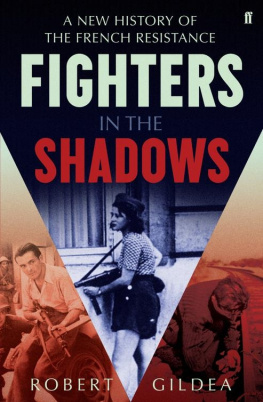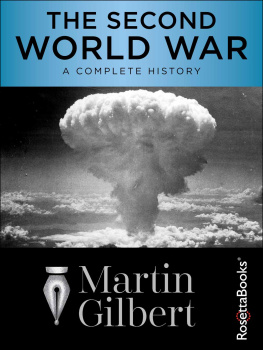FIGHTING ON ALL FRONTS
Popular Resistance in the Second World War
Edited by Donny Gluckstein
ABOUT THE AUTHORS
Kieran Allen is a lecturer in sociology in University College Dublin. His books include Marx and the Alternative to Capitalism and The Politics of James Connolly.
Kaye Broadbent is a senior lecturer in industrial relations at Griffith University, Brisbane, Australia. She has published on women, insecure work and unions in Japan and Korea.
William Crane has been an active socialist campaigner and writer in the USA and Britain, and a researcher on nationalism, labour and the left in South Asia. He is currently working on a PhD in Migration Studies at the University of Sussex.
Donny Gluckstein is a lecturer in history at Edinburgh College and a member of the Socialist Workers Party. His previous publications include The Nazis, Capitalism and the Working Class and A Peoples History of the Second World War: Resistance Versus Empire, the predecessor to Fighting on All Fronts.
Ben Hillier is an editor of Red Flag, a socialist newspaper in Australia.
Mark Kilian is deputy editor of the Dutch monthly paper De Socialist, and the grandson of a communist partisan, Peter van Sloten, who was executed on 7 March 1945 in Haarlem. He is preparing a peoples history of the Dutch empire in the Second World War.
Tom OLincoln has been active as a Marxist since 1966 in Germany, the USA and Australia. He is the author and/or editor of eight books including Australias Pacific War and The Neighbour from Hell: Two Centuries of Australian Imperialism.
Frank Renken contributes regularly to Marx21, a socialist magazine in Germany. He has worked and lived in North Africa. His books include Frankreich im Schatten des Algerienkrieges.
Janey Stone has written and presented on resistance to the Nazis during the Second World War in Germany, Poland and by Jews. Her mother, who migrated to Australia from Poland in 1938, lost a large part of her family in the Holocaust. As an anti-Zionist Jew, Janey has written about Jewish resistance to anti-Semitism and about the radical Jewish tradition.
Tom Tengely-Evans is a journalist on Socialist Worker and a socialist activist in east London.
FIGHTING ON ALL FRONTS
Popular Resistance in the
Second World War
Edited by Donny Gluckstein

Fighting On All Fronts: Popular Resistance in the Second World War
Edited by Donny Gluckstein
Published 2015 by Bookmarks Publications
c/o 1 Bloomsbury Street, London WC1B 3QE
Bookmarks Publications
Designed and typeset by Peter Robinson
Printed by the Russell Press
Cover picture: Jewish partisans near Vilna, just after the liberation
ISBN print edition: 978 1 909026 92 6
ISBN kindle: 978 1 909026 93 3
ISBN ePub: 978 1 909026 94 0
ISBN PDF: 978 1 909026 95 7
Contents
Introduction
Understanding the Second World War: practice and theory
Donny Gluckstein
Seventy years separate the end of the Second World War from 2015 and yet the issues it raised remain fundamental to our understanding of the world today.
It was supposed to be the moment when the dark days of the Depression were set aside and the forces of fascism and dictatorship that fed on them were definitively overcome. But the 1929 Wall Street Crash that sparked the Depression has its counterpart in the collapse of Lehman Brothers and the persistent economic crisis since 2008. In the 1930s the establishment diverted attention from the crisis-ridden nature of capitalism by targeting ethnic minorities, and the Nazis and other racists reaped the benefits. Nowadays the European extreme rightfrom the populist United Kingdom Independence Party (UKIP) to the outright fascist Front National in France or Jobbik in Hungaryis again gaining in confidence. International tensions, always present when there is a system of competing capitalist states, reached a new intensity in the 1930s, culminating in world war. Today imperialist rivalries that were supposed to have been banished by the fall of the so-called communist regimes of Eastern Europe in 1989 and The End of History are reviving.
At the same time the Second World War showed that there could be a different trajectory. It ushered in huge mass movements that tore down the colonial empires that dominated the globe, defied and destroyed fascist dictatorships and authoritarian rule and drove forward the development of welfare states. These too have their parallels today, whether it be in the challenge to the established political parties witnessed in places like Spain and Greece, the Arab revolutions or mass struggles against austerity, privatisation, oppression and exploitation.
The impact of the Second World War was so profound and so widespread that for a long time it was difficult to achieve the sense of distance and perspective needed for an effective analysis. On the whole only the surface phenomenathe military campaigns, the biographies of individual leaders and suchlikehave received attention. This book is an attempt to go beyond that. Understanding the complex political and social processes of the Second World War is important not only so that we can establish the truth about a major past event but also to furnish lessons for today.
This book covers a wide range of countries and situations from major protagonists, such as Japan and Russia, to colonies like the Philippines and Burma, to the sub-imperialism of Australia. It also looks at European resistance, the Jews, and even a neutral country, Ireland. However, the global reach of the Second World War means that even these numerous examples cannot provide a full picture. To achieve a broader overview the rest of this chapter provides a point of comparison for the various situations discussed in the book by considering the pattern of events in centres of resistance not otherwise covered here. It then offers a theoretical framework within which the conflict can be set.
The road to war
Contrary to later claims of anti-fascist intentions on the part of Allied governments, the Second World War began as a naked conflict between the haves and have-nots of imperialism. Britain and France had appeased Hitler when he seized Austria and Czechoslovak territory because they wished to enjoy the fruits of their empires in peace. This desire to maintain class domination (and consequent fear of communism) led Britains ambassador to Berlin to publicly applaud Hitler for gigantic progress in the military, industrial and moral reorganisation of Germany. Furthermore, the ambassador warned against war with Nazism because Moscows chief aim was to embroil Germany and the Western Powers in a common ruin.
As a backbench MP Churchill criticised appeasement because he saw German expansion as the greater threat to Britains empire. But he had no principled objection to fascism, telling Mussolini in 1927: if I had been an Italian, I am sure I should have been with you from start to finish in your triumphant struggleagainst Leninism. For its part Russia signed up to the Hitler-Stalin pact in August 1939, cynically agreeing to secret clauses that would partition Poland with Germany and give it the Baltic states.
To general disgust, he abandoned his countrymen when the invasion began.
Next page
